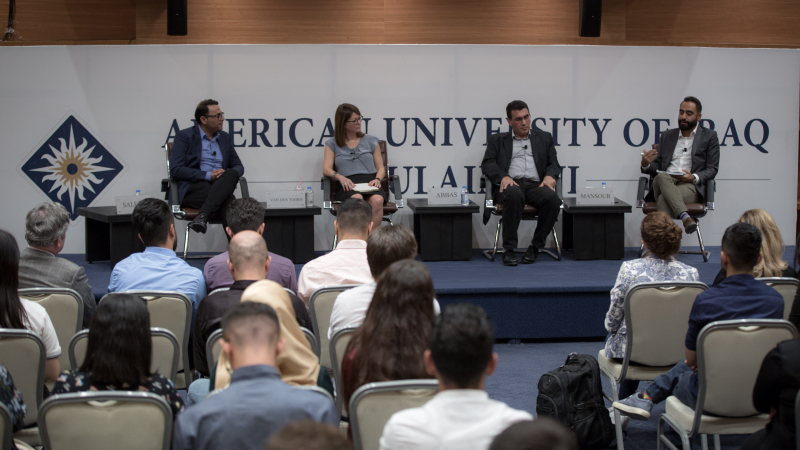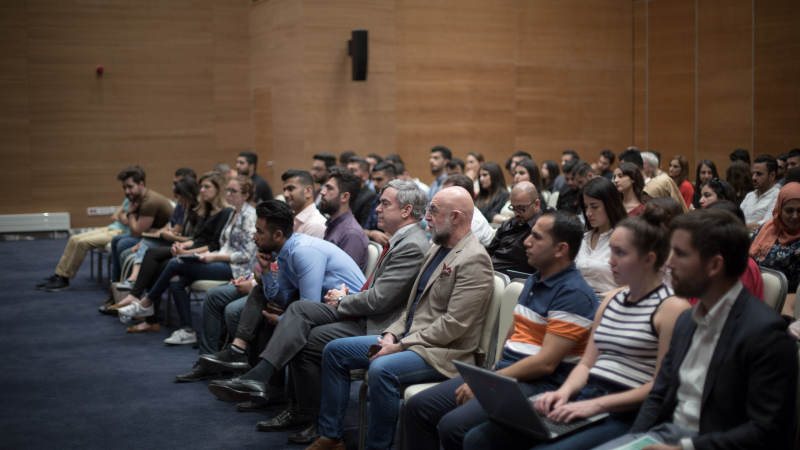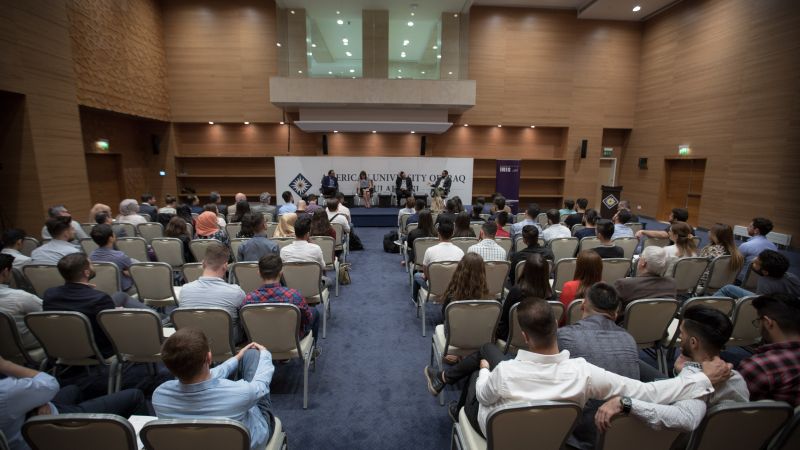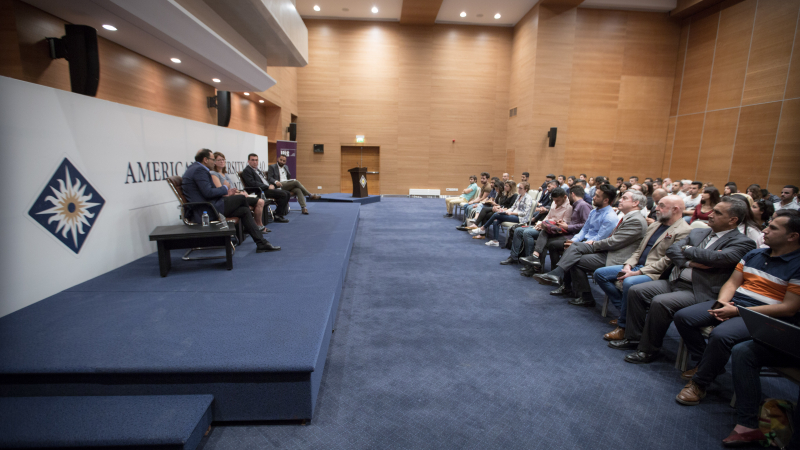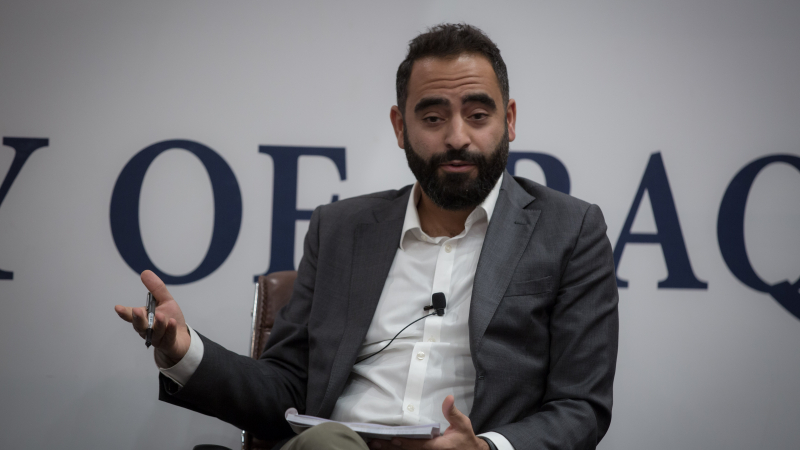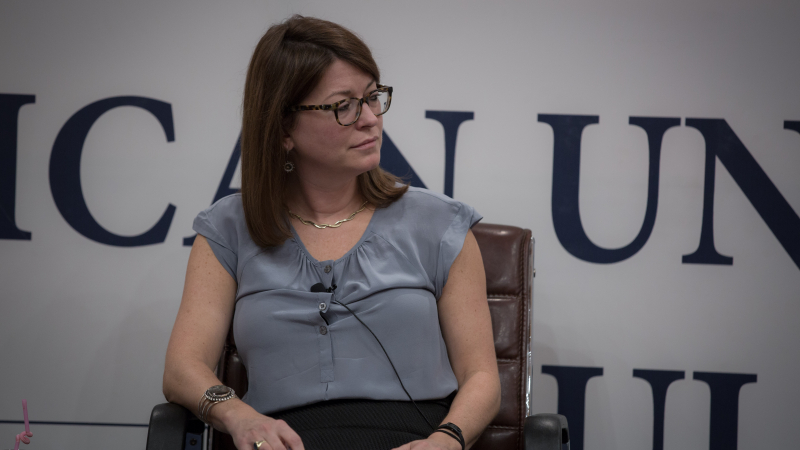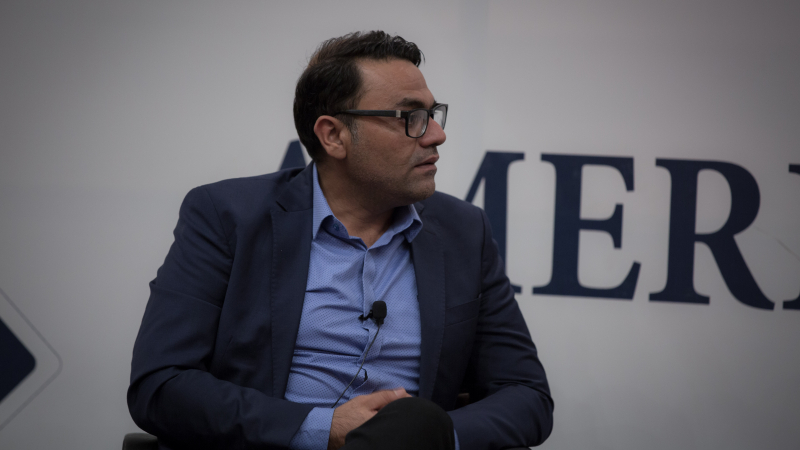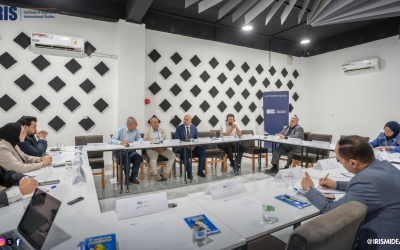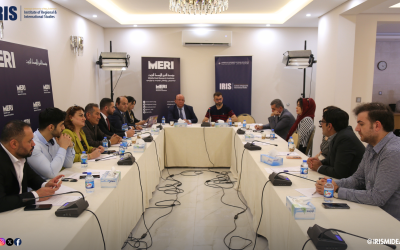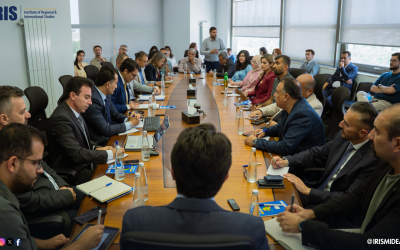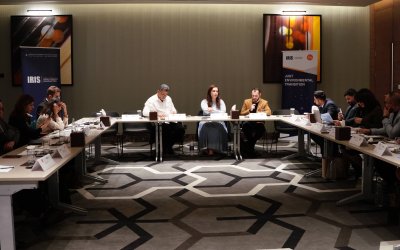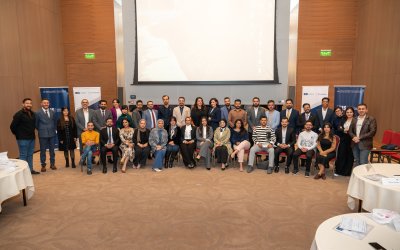On October 3, 2018, the Institute of Regional and International Studies (IRIS) at the American University of Iraq, Sulaimani (AUIS) hosted a panel on the changing political landscape in Iraq and the Kurdistan Region in light of the recent elections. Moderator Renad Mansour posed questions about the outcomes of the federal and regional elections, the significance of the widespread protests in Basra and Kurdistan, and the implications of the government formation process.
The panelists:
- Akeel Abbas, American University of Iraq, Sulaimani
- Zmkan Ali Saleem, Institute of Regional and International Studies | AUIS
- Christine van den Toorn, Institute of Regional and International Studies | AUIS
- Renad Mansour, Chatham House | Institute of Regional and International Studies
Discussing the recent federal elections, Akeel Abbas described a promising break from the politics of the post-2003 period – an era characterized by backroom deals, ethno-sectarian divisions, and a general neglect of popular demands for reform. This system began to crumble in 2014, as Shias in particular began protesting against the political class. The major organizing force in Iraqi politics is gradually shifting away from ethno-sectarian alliances towards mass popular mobilization against political elites as a whole. Politicians are waking up to the fact that they will lose hold of power if they do not respond to protestors’ demands. Abbas noted that even the most corrupt actors in the post-2003 political order were now advocating reform and improved services. He speculated that, given the ongoing strength of the protest movement, the next government would not survive if it failed to make tangible progress towards reform.
Christine van den Toorn discussed the significance of popular dissatisfaction across the Kurdish Region of Iraq (KRI). Protests in response to salary cuts have been common for the past three years since the onset of the financial crisis in 2014. Prior to the 2017 referendum, demonstrations did not spread beyond the historical “opposition city” of Sulaimani. However, in its immediate aftermath, they spread to Erbil and Dohuk and were violently suppressed by Kurdish security forces. The increased level of post-referendum popular discontent became evident in extraordinarily low voter turnout in both the federal and Kurdish regional elections. Van den Toorn noted that a number of issues contributed to negative sentiment toward current elected leadership, including a lack of progress over disputed internal boundaries, depressed salaries, and revenue sharing with Baghdad. Many of these issues require not only reform within the Kurdish Region but also a renewed Erbil-Baghdad relationship.
Shifting to the role of the opposition in the KRI, Zmkan Ali Saleem noted that the aftermath of the referendum and Kurdish regional elections indicated a huge setback for those who expected to see shifts in the domestic balance of power. The souring relationship between two main anti-establishment parties – Gorran and New Generation –contributed to the fragmentation of the opposition. Thus the KDP and PUK remain dominant and will likely continue to wield power in the KRI without much accountability. Saleem also touched upon the role of international interference in the elections. Given the historical KDP-Ankara and PUK-Tehran relationships in trade and security, both regional powers will continue to play a significant role in the Kurdish region.

